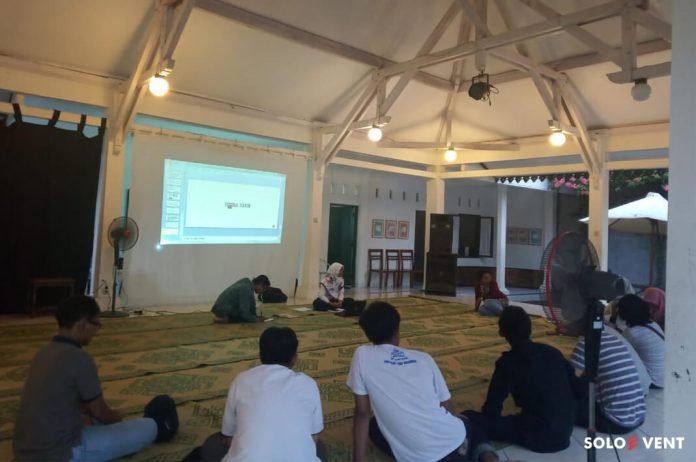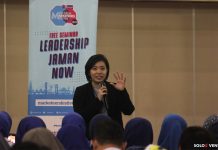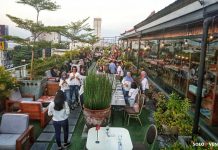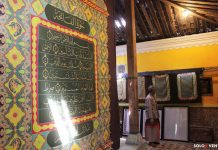Soloevent.id – How if it feels when you are fasting in the colonial era? On Saturday (05/11/2019), the History lecturer of IAIN Surakarta, Martina Safitry, M.A, discussed it during the killing time before iftar at the Rumah Budaya Kratonan.
Martina explained that during Ramadan, students who were going to the school in the Dutch era had a holiday for 39 days.
Before 1929, The Dutch actually gave freedom to fast Ramadan but ban on holding Tarawih prayers.
The Dutch forbade it because they considered could be trigger treason. The fasting permit by the Dutch government is also based on the anticipation of mass guerrillas carried out by Indonesian people who are predominantly Muslim.
When the Dutch allowed Tarawih prayer, they determined the location.
The first Eid al-Fitr was held at the Great Mosque of Bandung in 1926. The celebration was attended by the Arab community and Bumiputera employers. In 1939, the Dutch government allowed for holding Eid al-Fitr prayers in the Bandung Regency office.
Regarding the stipulation of Ramadan and Eid al-Fitr, the Dutch government did not interfere and surrendered it to the institutions or organizations that sheltered the Islamic community. The Dutch only carry out supervision.
“In celebration of welcoming Ramadan, colonial-era society – especially in Central and East Java – held a variety of events that are still thick with Hindu Buddhist culture,” Martina said
The Ngabuburit at the RBK was held by a student group in the History of the State Islamic Institute (IAIN) Surakarta during the month of Ramadan. Discussion of Ramadan in the colonial era was the first of a total of 10 events. Ngabuburit at the RBK is held on 11, 14, 16, 18, 21, 23, 25, 28, 30 May and 1 June 2019.

















